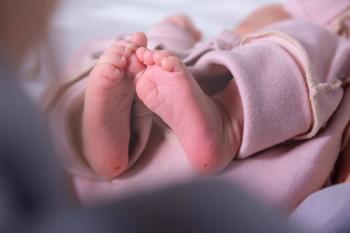
Impact of high-dose vitamin D supplementation on offspring’s bone health
A new study examines whether a high dose of vitamin D during pregnancy improves the bone health of offspring.
Supplementation during pregnancy can have potential positive health outcomes for offspring. A new
Researchers did a prespecified analysis of a double-blinded, randomized clinical trial using the Copenhagen Prospective Studies on Asthma in Childhood 2010 cohort that included 623 pregnant women and their 584 children. The women were given either a 2800 IU/d of vitamin D (high dose) or 400 IU/d (standard dose) from the 24th week in the pregnancy until a week following birth.
At age 6 years, 517 children underwent clinical follow-up. An analysis of dual-energy radiography absorptiometry scan outcomes from ages 3 years and 6 years found that the children born to mothers who had been given a high dose of vitamin D had higher whole-body bone mineral content than the children born to mothers who were given a standard dose. The effect was most significant in children who had vitamin D–insufficient mothers (<30 ng/mL) and children with winter births. A post hoc analysis also showed a borderline lower incidence of fracture in children born to mothers with an increased vitamin D dose in pregnancy.
Researchers concluded that high-dose vitamin D supplementation during pregnancy improved bone health in children. One key limitation to the study was the homogenous nature of the cohort as all participants were white and Danish.
References:
1. Brustad N, Garland J, Thorsen J, et al. Effect of high-dose vs standard-dose vitamin D supplementation in pregnancy on bone mineralization in offspring until age 6 years: a prespecified secondary analysis of a double-blinded, randomized clinical trial. JAMA Pediatr. 2020;174(5):419-427. Doi: 10.1001/jamapediatrics.2019.6083
Newsletter
Access practical, evidence-based guidance to support better care for our youngest patients. Join our email list for the latest clinical updates.






